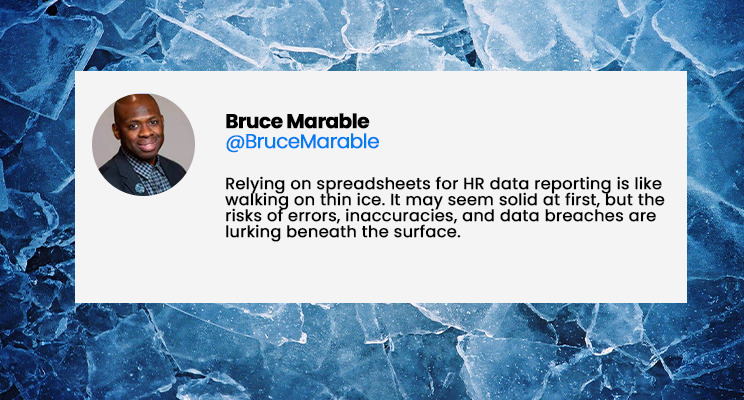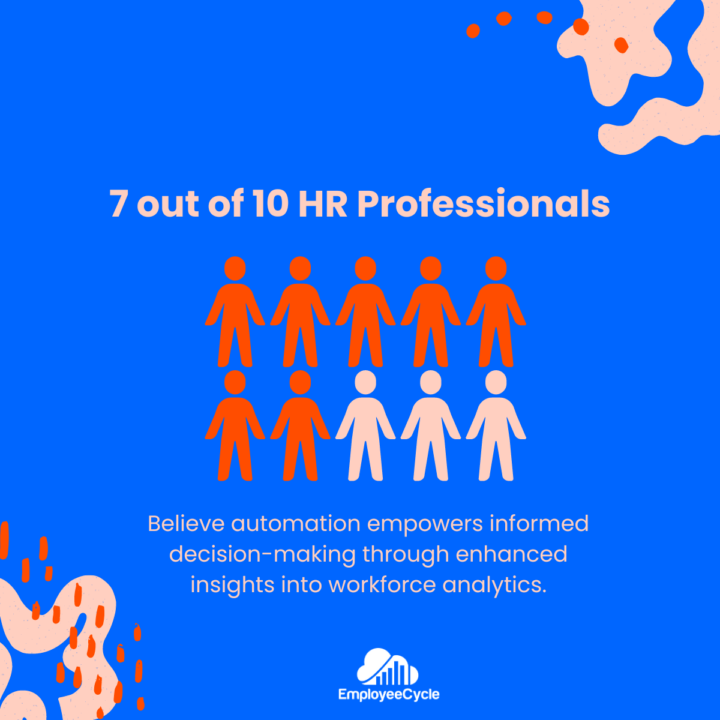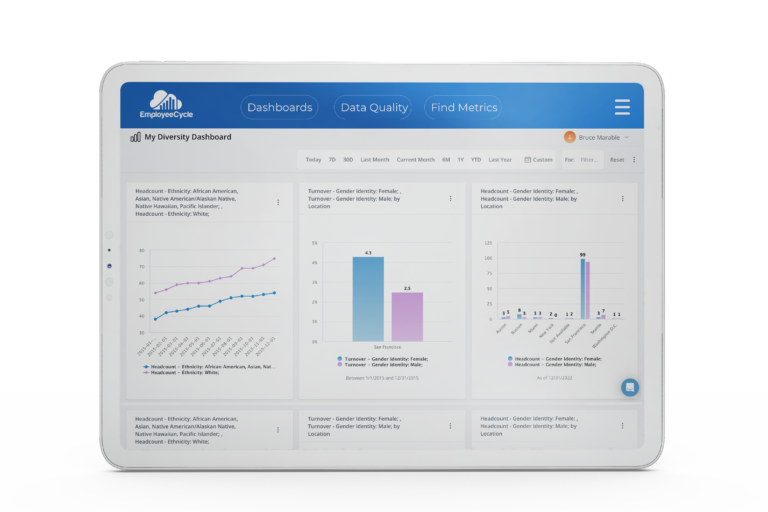Protecting your HR Operations against the risks, costs, and losses of spreadsheets
Welcome to the world of Human Resources where everything seems to revolve around data and reporting. As an HR professional, you are tasked with the responsibility of managing, organizing, and analyzing large volumes of data on a daily basis. This is critical to the smooth functioning and success of your organization. The process of data collection and reporting can be quite tedious and often prone to errors when done manually. Unfortunately, many HR leaders still rely on spreadsheets to collect, analyze, and report data.
Although spreadsheets have been around for decades, with sophisticated features and formulas, they may no longer be the best option for modern HR reporting. Let’s face it – Spreadsheets can be a nightmare! They often require hours of manual labor, are prone to errors, lack standardization, inability to analyze complex data, difficulty in tracking historical data, and pose security risks. Worst of all, spreadsheets can compromise the accuracy and reliability of your HR data.
But don’t worry, there’s a silver lining! By adopting an automated HR reporting solution, you can reduce errors, save time, analyze data more effectively, and enjoy better data security. In the following sections, we will delve deeper into the drawbacks of using spreadsheets for HR reporting and explore the benefits of switching to an automated HR reporting system. So, sit tight and get ready to embrace the future of HR reporting!
Counting the cost: Are your spreadsheet reports draining your resources?

Let’s get real, shall we? Using spreadsheets for HR reporting is so 90s, it’s time to upgrade! But hey, don’t take my word for it. Before you start making those charts and tables, let’s talk about some common mistakes you might be making with spreadsheets.
- Input errors. We all make mistakes, and even a small click in the wrong place can disrupt your data. Spreadsheets are particularly vulnerable, as one simple mistake can create a domino effect, turning your HR report into chaos! Surprisingly, a study by The Hackett Group found that a whopping 88% of spreadsheets have errors. These errors can result in unreliable reports, flawed insights, and harmful decision-making. Inaccurate data diminishes the value of HR reporting and can significantly impact an organization’s operations.
No standardization. When multiple individuals collaborate on a single spreadsheet, things can become quite disorganized. You might have noticed that employees use varying formats, abbreviations, and units of measurement, making it difficult to interpret the data.
- Spreadsheets aren’t equipped to analyze complex data, which could prevent you from gaining critical insights. These reports only present raw data without delving deeper into the patterns and trends. Good luck trying to track historical data with spreadsheets. It’s like trying to find a needle in a haystack! Unless you’re an Excel wizard, tracking changes made to your HR report over time can be an overwhelming task, making spreadsheets an unsuitable option.
- Security risks. Spreadsheets offer minimal protection for your data, leaving it susceptible to cyber-attacks, breaches, and other security threats. So, what’s the solution? Enter automated HR reporting, your ultimate ally. By enhancing data accuracy, boosting efficiency, and providing analytics, automated HR reporting streamlines your data management process, saving both time and money. In contrast, spreadsheets lack robust security measures, leaving sensitive HR data exposed to breaches. According to a survey by Statista, 63% of respondents expressed concerns about security risks when using spreadsheets for HR data. Embracing automated HR reporting solutions equipped with built-in security features helps protect confidential employee information and mitigate potential risks.
Making the switch from spreadsheets to an automated HR reporting solution can sound daunting, but it’s worth it. Once you’ve identified your organization’s specific HR reporting needs, researched different HR reporting solutions, tested and piloted the solution, trained and adopted, voila! You’re ready to automate. Embracing automation for HR reporting is no longer an option, it’s a necessity! With the inevitability of technology in HR reporting, you need to stay ahead of the curve and embrace the potential of automation to gain a competitive edge. Don’t get left behind – consider switching to an automated HR reporting solution.


According to a report by PwC, 68% of HR leaders believe that automation enables better decision-making by providing deeper insights into workforce analytics.
Benefits of Adopting an Automated HR Reporting Solution
Imagine you’re an HR professional, and you’re staring at a spreadsheet that contains important data. That’s your day – staring at tiny cells trying to put together information that can help your organization. Exhausting, isn’t it? But what if we told you that you don’t have to live in a world of sheets anymore? That you, dear HR leader, can put your spreadsheet to rest, and automate your HR reporting? You can, and here’s how it pays off –
- Improved data accuracy. We all know that human errors can wreak havoc in data entry, especially for HR departments. With automated HR reporting, you can bid farewell to such errors, as the software is designed to capture and analyze data with greater precision than humans. Additionally, you won’t have to spend time manually organizing data for reports, which often leads to mistakes and important data loss. According to a study by The Workforce Institute, 73% of HR professionals believe that automation enhances data accuracy. Automated HR reporting solutions minimize human errors in data entry and provide real-time data updates, ensuring the reliability and integrity of HR insights. By eliminating manual processes, organizations can significantly improve data accuracy and make well-informed decisions based on trustworthy information.
- Increased efficiency and time savings. With automated reporting, you can bid farewell to the monotonous task of manual data entry and reclaim valuable time to focus on other crucial HR matters. The automated solution takes care of generating reports, freeing you up to tackle essential HR responsibilities. According to a report by Ventana Research, HR departments spend an average of 18 hours per week managing spreadsheets manually. This manual workload not only consumes valuable time and resources but also increases the risk of errors. By automating HR reporting, significant time can be saved on administrative tasks, empowering HR professionals to dedicate their efforts to strategic initiatives.
- Ease of Data Maintenance and Management. An automated solution makes it a breeze to handle employee databases, attendance records, compensation, benefits, and more, all integrated into a single platform. This integration minimizes errors and ensures data consistency. According to a study by The Workforce Institute, 73% of HR professionals believe that automation enhances data accuracy. Automated HR reporting solutions minimize human errors in data entry and provide real-time data updates, ensuring the reliability and integrity of HR insights. By eliminating manual processes, organizations can significantly improve data accuracy and make well-informed decisions based on trustworthy information.
- Improved Decision-making with real-time insights. With automated reporting software’s analytical capabilities, you can gather meaningful insights into your organization’s HR practices. Dashboards are available that display real-time HR data, making it easier to track trends and identify patterns, leading to informed decisions. Spreadsheets have limitations when it comes to analyzing complex HR data. However, automation empowers HR leaders with advanced analytics capabilities. According to a report by PwC, 68% of HR leaders believe that automation enables better decision-making by providing deeper insights into workforce analytics. Automated HR reporting tools offer sophisticated analytics and visualization features, enabling HR professionals to identify trends, patterns, and correlations, leading to data-driven decision-making.
- Enhanced Data Security and Confidentiality – Automated HR reporting software comes with robust security measures in place to protect confidential data from cyber-attacks, hackers, and unauthorized access.
Now that you know what automated HR reporting can do for your organization, It’s time to say goodbye to the era of spreadsheets and embrace automation. Not only does automation bring convenience, but it also significantly upgrades your HR department’s effectiveness and efficiency. It’s a win-win!

Making the Switch from Spreadsheets to Automated HR Reporting
Making the Switch from Spreadsheets to Automated HR Reporting: Now that you have a clear understanding of the drawbacks of using spreadsheets for HR reporting and have realized the potential benefits of adopting an automated HR reporting solution, it is time to make the switch. Here are some key points to consider: Firstly, identifying your organization’s specific HR reporting needs is crucial. Determine what type of data you need to collect, report, and analyze to make informed business decisions. This will help you select the right HR reporting solution that meets your needs. Secondly, research different HR reporting solutions available in the market. Avoid making impulse purchases or selecting a solution based solely on cost. Look for a solution that is user-friendly, customizable, and has a robust set of features that meet your specific needs. Thirdly, after selecting a solution, testing and piloting it within a small group of HR professionals is recommended. This allows you to identify any potential issues and work out the kinks before implementing it across the entire organization. Finally, after testing, a comprehensive training plan should be put in place to ensure the solution is adopted effectively and efficiently. Adequate training and support will increase adoption rates and ensure that HR professionals use the solution to its fullest potential. Switching from spreadsheets to automated HR reporting may seem like a daunting task, but with the right approach and solution, it can save time, reduce errors, and unlock valuable insights. Why not embrace the future of HR reporting?
The Future of HR Reporting: Embracing Automation
Let’s face it, using spreadsheets for HR reporting is a thing of the past. Technology in HR reporting is inevitable and it’s time for HR managers to embrace automation. Automation offers numerous benefits, including faster and more efficient reporting, real-time insights and enhanced data security. With automation, HR managers can now stay ahead of the game by providing more accurate and reliable data, giving them a competitive edge in the job market. The potential of automation in HR reporting is limitless. Imagine a world where HR managers can access real-time employee data like never before. Automation allows for the customization of reports, making it easy for HR managers to gain insight into employee productivity, job satisfaction, employee engagement, just to name a few. With the use of automation in HR, HR leaders can take their reporting to the next level. It’s time to say goodbye to the days of manually processing data on spreadsheets, and hello to the world of automation.
Conclusion
In conclusion, relying on spreadsheets for HR reporting is like using a typewriter in the age of computers. The potential for input errors, lack of standardization, and security risks are just too great. On the other hand, automating HR reporting can improve accuracy, save time, and provide real-time insights. Embracing automation is the key to staying ahead of the game in HR and streamlining data management. So, let’s bid farewell to spreadsheets and embrace automation for a better, more efficient HR reporting future.
We Can Help
Discover how Employee Cycle simplifies data maintenance, integrates employee databases, and streamlines reporting. With increased efficiency and time savings, you can focus on strategic HR initiatives. Make informed decisions based on reliable information and unlock the potential of your HR data.
Enhanced data security and confidentiality are built-in features of Employee Cycle. Experience the future of HR reporting with a risk-free demo. Schedule yours now!
Try Employee Cycle risk-free, no credit card or money upfront required! Schedule your demo and free-trial today:











